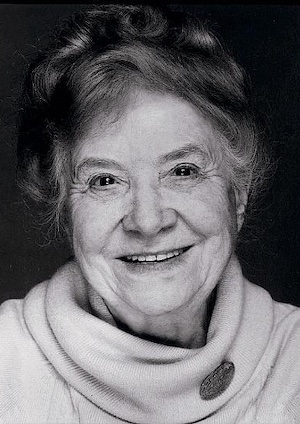By Eliza Browning
Phi Beta Kappa’s Delta of Maine chapter at the University of Maine recently celebrated a significant milestone. On April 27, the chapter inducted 36 students into their centenary class, one hundred years after the chapter was initially approved in 1922 and the first class inducted the following spring. The University of Maine is the only public institution in the state to have a ΦBK chapter and is one of the 100 oldest in the organization. Timothy Cole, the associate dean of the College of Liberal Arts and Sciences and ΦBK’s Delta of Maine chapter president; University of Maine President Joan Ferrini-Mundy; Provost John Volin; and Interim Associate Secretary Amy Mulnix from Phi Beta Kappa’s national office all spoke at the event. “A centennial is a great opportunity to reflect on our chapter’s origins,” Cole said. “At the same time, this year’s initiates display the same commitment to the core values of a liberal education that animates every ΦBK chapter. So we’re celebrating the continued essential vitality of ΦBK here at UMaine.”
Cole, a former chair of the Department of Political Science at the University of Maine, graduated Phi Beta Kappa from Colorado State University before earning his Ph.D. at the University of Washington. Phi Beta Kappa has played a significant role in his personal life and career — his wife and two children are also ΦBK members, and for ten years he’s led the Delta of Maine chapter, which has included selecting candidates and organizing programs and events such as the Phi Beta Kappa Visiting Scholar Program at UMaine. “I’m able to meet students from other colleges across the university,” Cole said, adding that he is inspired by the annual classes of inductees whose “transcripts tell stories” about their accomplishments throughout college. At the recent induction ceremony, Cole connected the class of 1923 to UMaine’s original ΦBK cohort in 1923, which consisted of only eight students. Of these students, half went on to further postgraduate education and many enjoyed successful professional careers.
During the induction, Cole highlighted the story of the 1923 ΦBK graduate Doris Twitchell Allen, a University of Maine alumna who is remembered today for her pioneering work as a child psychologist and founding the organization Children’s International Summer Villages (CISV). Allen was born in 1901 in nearby Old Town, Maine, to a physician and an elementary school teacher, graduating from UMaine with a bachelor’s degree in chemistry in 1923 and a master’s in biology in 1926. Initially, Allen intended to follow in her father’s footsteps and attend medical school, but through her work conducting field studies with the Bureau of Educational Research in 1926 she soon developed an interest in educational psychology. She later completed a Ph.D. in clinical psychology at the University of Michigan in 1930 and pursued further studies at the University of Munich and the Psychological Institute at the University of Berlin in 1932. Upon moving to New York City she married Erastus S. Allen, an attorney for Procter & Gamble, and began her psychology career as the Director of the Field Laboratory at the Child Education Foundation, now known as CISV, from 1932 to 1935. Allen and her family later moved to Cincinnati, Ohio, where she founded and was the initial Director of Psychological Services at Children’s Hospital and the Children’s Convalescent Home from 1936 to 1938, and Chief Psychologist at the Longview State Hospital from 1944 to 1957. Allen also enjoyed an illustrious academic career. In 1949, she was hired as an assistant professor at the University of Cincinnati, where she was promoted to full professor in 1962 and worked until her retirement in 1972. She was also a professor of psychology (psychodrama) at the University of Maine, where the Doris Twitchell Allen Village (DTAV) student accommodation blocks were named for her. She developed several valuable tools in the field of educational psychology, including the Social Learning in the Schools Through Psychodrama project and the Twitchell-Allen Three-dimensional Personality Test for use in CISV research and clinical practice to measure personality dynamics across age and culture.
Today, Allen is remembered for her notable accomplishment of founding Children’s International Summer Villages (CISV) in 1950. In the wake of World War II, she envisioned an organization that would foster intercultural knowledge and understanding to promote world peace, “I knew that the ultimate source for peace, long range, lay with the children,” she wrote. She developed a model for a multinational summer village where children from different countries could come together to learn and explore, which she believed should be fully studied and documented so that it could contribute to global research in the field of educational psychology. CISV continues to exist today as a federation of nearly 70 national associations with more than 200 chapters, offering seven international summer camps for 11-year-olds, family exchange programs, and local community programs bringing together delegates from around the world. For her contribution to peace work as a child psychologist and through the founding of CISV, she was nominated for the Nobel Peace Prize in 1979 (the UNESCO Year of the Child), the Freedom Medal in 1999, the Hague Appeal for Peace Prize in 2001, and the UNESCO Prize for Peace Education in 2001. After celebrating the 50th anniversary of CISV, Allen died in 2002 at the age of 100. Her story was highlighted by Cole as a source of inspiration for UMaine’s 2023 ΦBK inductees, commemorating 100 years of academic excellence at the University of Maine.
Eliza Browning is a master’s student at the University of Oxford studying modern and contemporary literature. She graduated Phi Beta Kappa in May 2022 from Wheaton College, where she was inducted in November 2021. Wheaton College is home to the Kappa of Massachusetts chapter of Phi Beta Kappa.




